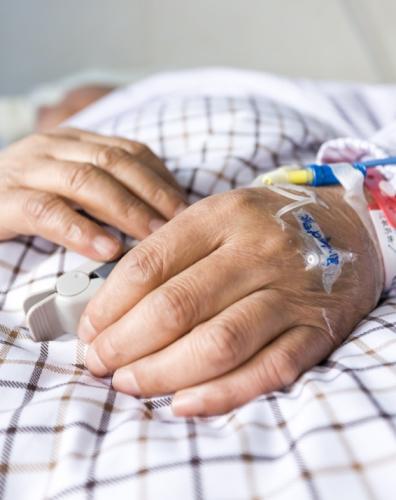Jordanian health officials reported four more MERS-CoV cases to the World Health Organization (WHO) today, two of them involving healthcare workers and all of which appear to be linked to a hospital outbreak in Amman. Two of the cases appear to have been sketchily reported last week by the local media.
Meanwhile, Saudi Arabia reported a new MERS-CoV (Middle East respiratory syndrome coronavirus) illness, its first in 5 days.
With hospital outbreaks reported in the capital cities of both countries, it's becoming increasingly clear healthcare settings play an important role in amplifying the disease, though many questions still remain about how and why it spreads in those facilities.
Jordan cluster now at 15
Two of the four cases in Jordan detailed in an update from the WHO today appear to be new cases, and one of them was fatal. Two were apparently reported earlier with very few details in a Sep 20 report in Arabic from Petra, Jordan's state news service.
A hospital outbreak in Amman has been under way since the end of August, and the new cases covered in the WHO update today bring the number of recent cases there to 15, six of them fatal.
One infected healthcare workers is a 29-year-old man who had cared for an earlier lab-confirmed MERS patient. He got sick on Sep 15 and sought care in his hospital's emergency department, which treated his symptoms and sent him home. The man, who has underlying medical conditions, tested positive for MERS-CoV on Sep 20, and he was hospitalized and is in stable condition. His case appears to have been reported in the local media on Sep 20, but the media report at that time included no details on the other case.
The other health worker is a 39-year-old woman whose asymptomatic infection was detected during contact tracing. She had previously cared for an earlier lab-confirmed MERS patient and is currently on home isolation.
Also included among Jordan's latest cases are a 60-year-old man who had visited a hospital where a MERS-CoV patient had been treated and a 69-year-old woman who became ill after she was hospitalized for a cardiovascular condition.
The man is in stable condition, and health officials are still investigating any links he had to the hospitalized MERS patient or shared healthcare workers. The woman was admitted to a second facility on Sep 17, a day after discharge for cardiac hospitalization. She died on Sep 22, the same day she tested positive for MERS-CoV.
The WHO said the new cases raise the number of MERS-CoV reports it has received to 1,593, which includes at least 568 deaths.
Riyadh patient is not health worker
Saudi Arabia 's latest case-patient is a 38-year-old foreign man who got sick in Riyadh and is listed in stable condition. He is not a healthcare worker, and his exposure to the virus is still under review, so it's unclear if his illness is part of a large hospital outbreak in the city. Since Jul 21 the city has recorded 172 MERS cases.
In its statement, the Ministry of Health (MOH) said four more people have recovered from their infections, raising that total since MERS-CoV first emerged in the country to 692. The new case lifts the country's case total to 1,251, with the number of deaths remaining at 536.
Age, chronic conditions as death risk
In other news, a statistical model used to track the risk of MERS-CoV deaths in real-time during South Korea's outbreak revealed that people age 60 and older and those being treated for underlying medical conditions were more likely to die from the disease. An international research team based in Japan published the findings yesterday in BMC Medicine.
Seniors were 9.3 times more likely to die (95 % confidence interval [CI], 5.3-16.9) compared with younger patients, and those undergoing treatment for chronic medical conditions were 7.8 times more likely to die (95 % CI, 4.0-16.7). The model adjusted for the delay between illness onset and death.
The team also found that the case fatality rate (CFR) was similar to that for SARS, with CFR estimates for older MERS patients similar to those of other studies. They found that the CFR dropped sharply after early June, which seemed to go hand in hand with enhanced contact tracing that identified a number of mild cases.
See also:
Oct 1 WHO update
Sep 21 CIDRAP News story "Saudi Arabia, Jordan report more MERS as Hajj begins"
Oct 1 Saudi MOH statement
Sep 30 BMC Medicine abstract





















